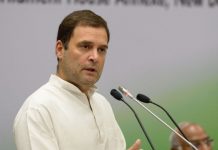
MOST TAKE a shot at politics for the power it will afford them. There are only a few who willingly opt for it even though they can more than afford to stay out of it. The young, 39-year-old, Naveen Jindal, who is now contesting for a second time to reclaim the constituency of Kurukshetra in Haryana, is one such industrialist. With a turnover of Rs 10,000 crore, the steel baron can spend the rest of his life in the lap of luxury. But the barely three-hour journey between Delhi, where Jindal Steel is headquartered, and the by-lanes and dirt tracks of Kurukshetra, where he is now campaigning, is a journey he has thought long and hard about.
On the campaign trail, he has interesting anecdotes to narrate and this is one of them: as a child, I once asked my father (OP Jindal, a Congress minister in Haryana who died in a helicopter crash in 2005) what the power of an MLA and MP was and he replied, “nothing”. So why then has Naveen, the youngest of three brothers, chosen to fill his father’s shoes? Even at 39 and at the end of a five-year-tenure as a Member of Parliament, he questions his own role as an MP, “What are my executive powers? Nothing. We are truly a bureaucracy. People can approach me but not the officers.’’
So like so many other young MPs who are seldom recognised even by their own parties, why is Naveen, touring six to ten villages in a day, getting off his Land Cruiser to pay condolences to unknown villagers who seldom touch his life? A part of the answer is available through the speeches he makes at different village stops. “My father always told me that we are blessed. We are what we are because of all of you. Aap ka ashirwad hi hamari takat hai (Your blessings are our power) and we want to make your lives better.”
There are other reasons that keep him committed to the political pact he has made with himself. He explains it thus, “There was a way shown in Rang De Basanti but that is not the right way. For me, politics is a means by which I can do a lot for my country. I want to be instrumental in changing government policies and you can change the system only by being part of the system.”
As a first-time candidate from Kurukshetra in 2004, he won by a huge margin of 1.62 lakh votes and had the particular satisfaction of defeating Abhay Chautala, the son of former Chief Minister Om Prakash Chautala. Naveen has tried in the subsequent five years to develop a constituency whose fate is decided by 13 lakh voters. Unlike most MPs, he has figures that can be flaunted — he has set up 688 eye camps where, apart from OPD facilities, 24,461 people have been operated. Medical vans have travelled through over 6,000 sites (his constituency comprises 1,100 villages) and he has also set up gyms and sewing centers, apart from constructing over 50,000 toilets for families living below the poverty line, who even in the 21st century were defecating in the open until then.
THE MAIN charge that his opponents throw at him is interesting. It is a charge that won’t come the way of too many MPs, but is flung at this young baron, probably because of his personal wealth. He spends too much money on his constituency worry his opponents: Naveen makes capital use of that worry. “An MP gets Rs 2 crore per year for their constituency and, yes, I spend two plus an additional Rs 10 crore. So, what’s their problem? I’m only spending it on my people,’’ is a ready answer at all his village rallies.
‘The way shown in Rang De Basanti is not the right way. You can change the system only from within, by being a part of it,’ says Jindal
He must have been surprised, therefore, to find a shoe come his way by a drunk and disgruntled former employee, especially since his aim this time is to take his victory margin well beyond the two-lakh mark. But that’s not the only thing this MP is obsessing about. He sees himself as an agent of social change and though, self-admittedly, he has no executive powers within Kurukshetra, he uses the floor of the Lok Sabha to focus on the changes he wishes to bring. Naveen has the record of having asked the most questions among the ten MPs that Haryana sends to Parliament and they have been on varied issues — from health delivery systems in rural areas to the bidding process for the import of wheat to violence against minorities and the ill effects of carbonated soft drinks.
GenNext is restless for change and Naveen Jindal has an agenda for the next five years. It is to do with a Food Security Act that works towards zero hunger. It also has to do with schemes that can ‘reduce our population’ and tackle corruption. The journeys between his air-conditioned office in Delhi and the dirt tracks of Kurukshetra are shaping his agenda.












